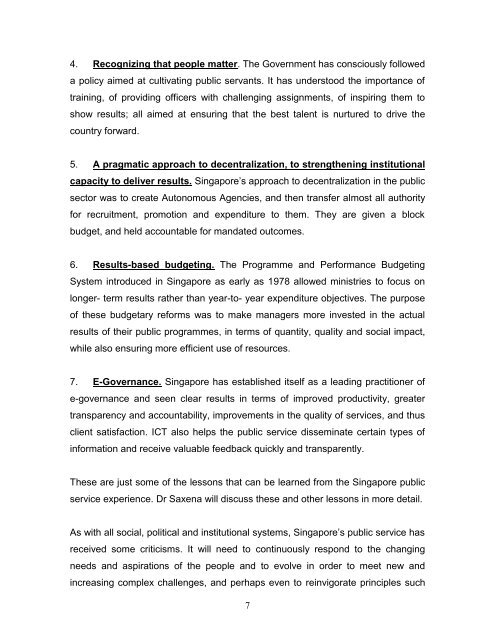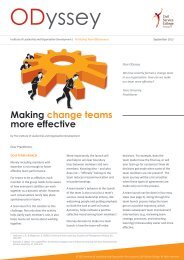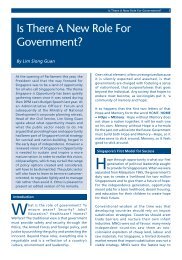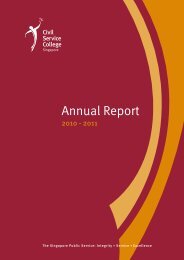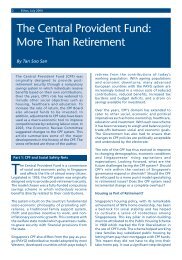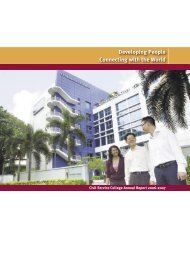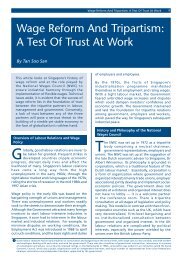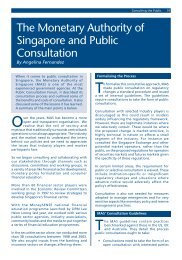The Singapore Public Service and National Development
The Singapore Public Service and National Development
The Singapore Public Service and National Development
You also want an ePaper? Increase the reach of your titles
YUMPU automatically turns print PDFs into web optimized ePapers that Google loves.
4. Recognizing that people matter. <strong>The</strong> Government has consciously followed<br />
a policy aimed at cultivating public servants. It has understood the importance of<br />
training, of providing officers with challenging assignments, of inspiring them to<br />
show results; all aimed at ensuring that the best talent is nurtured to drive the<br />
country forward.<br />
5. A pragmatic approach to decentralization, to strengthening institutional<br />
capacity to deliver results. <strong>Singapore</strong>’s approach to decentralization in the public<br />
sector was to create Autonomous Agencies, <strong>and</strong> then transfer almost all authority<br />
for recruitment, promotion <strong>and</strong> expenditure to them. <strong>The</strong>y are given a block<br />
budget, <strong>and</strong> held accountable for m<strong>and</strong>ated outcomes.<br />
6. Results-based budgeting. <strong>The</strong> Programme <strong>and</strong> Performance Budgeting<br />
System introduced in <strong>Singapore</strong> as early as 1978 allowed ministries to focus on<br />
longer- term results rather than year-to- year expenditure objectives. <strong>The</strong> purpose<br />
of these budgetary reforms was to make managers more invested in the actual<br />
results of their public programmes, in terms of quantity, quality <strong>and</strong> social impact,<br />
while also ensuring more efficient use of resources.<br />
7. E-Governance. <strong>Singapore</strong> has established itself as a leading practitioner of<br />
e-governance <strong>and</strong> seen clear results in terms of improved productivity, greater<br />
transparency <strong>and</strong> accountability, improvements in the quality of services, <strong>and</strong> thus<br />
client satisfaction. ICT also helps the public service disseminate certain types of<br />
information <strong>and</strong> receive valuable feedback quickly <strong>and</strong> transparently.<br />
<strong>The</strong>se are just some of the lessons that can be learned from the <strong>Singapore</strong> public<br />
service experience. Dr Saxena will discuss these <strong>and</strong> other lessons in more detail.<br />
As with all social, political <strong>and</strong> institutional systems, <strong>Singapore</strong>’s public service has<br />
received some criticisms. It will need to continuously respond to the changing<br />
needs <strong>and</strong> aspirations of the people <strong>and</strong> to evolve in order to meet new <strong>and</strong><br />
increasing complex challenges, <strong>and</strong> perhaps even to reinvigorate principles such<br />
7


